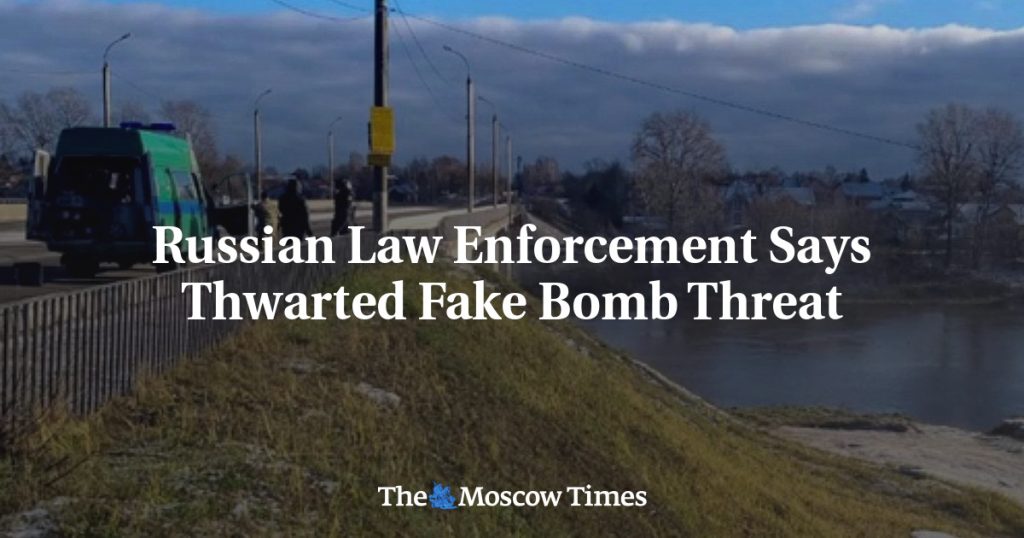Russian security and law enforcement authorities recently announced the prevention of a fake bomb threat orchestrated by a private security firm based in the city of Tver, located 160 kilometers northwest of Moscow. Three members of the transportation security organization were involved in placing three fake bombs under two road bridges, followed by providing fake information about an impending terrorist act via phone. This act was discovered and reported by the regional branch of Russia’s Investigative Committee, resulting in the charging of two men with knowingly reporting a false terrorist act – a crime that carries a penalty of up to eight years in prison. A third female suspect allegedly involved in the incident has fled Russia and is now on an international wanted list.
The Federal Security Service (FSB) confirmed that the group responsible for the fake bomb threat included both managers and employees of the transportation security firm. However, the exact identity of the organization involved was not disclosed by either the FSB or the Investigative Committee. The woman who has fled the country was reported to have been outside Russia during the period when the incident took place. The details surrounding her role in the scheme remain unclear. With the investigation ongoing, authorities are working to uncover the full extent of the involvement of this private security firm and whether any other individuals may be connected to the fake bomb threat.
The thwarting of this planned terrorist act emphasizes the dedication of Russian security and law enforcement authorities to prevent potential threats to public safety. In a country that has faced security challenges in the past, such as terrorist attacks, authorities are working diligently to ensure the safety and security of its citizens. The coordination and swift action taken to investigate and apprehend the suspects involved in this fake bomb threat demonstrate the effectiveness of Russian security measures in responding to potential threats and criminal activities.
The seriousness of the offense, as indicated by the potential penalty of up to eight years in prison for those charged with knowingly reporting a false terrorist act, sends a strong message regarding the consequences of engaging in such illegal activities. By holding individuals and organizations accountable for their actions, law enforcement agencies aim to deter others from attempting similar acts that can disrupt public safety and instill fear in communities. The thorough investigation and prosecution of those involved in the fake bomb threat highlight the commitment of Russian authorities to upholding the rule of law and ensuring that such incidents are swiftly addressed.
As the investigation continues and efforts are made to locate and apprehend the third suspect who has fled the country, Russian security and law enforcement agencies will likely focus on uncovering any potential motive behind the fake bomb threat and identifying any further individuals who may have been involved in the scheme. The collaboration between various agencies, such as the Investigative Committee and the FSB, underscores the importance of coordination in addressing security threats and criminal activities. By working together and sharing information, these agencies can effectively combat terrorism and other threats to public safety in Russia.
In conclusion, the thwarting of a fake bomb threat organized by a transportation security organization in Tver serves as a reminder of the constant vigilance required by security and law enforcement authorities to protect the public from potential threats. The prosecution of those involved in the scheme, as well as the ongoing efforts to locate the remaining suspect, reflect the commitment of Russian authorities to maintaining public safety and upholding the rule of law. Through continued cooperation and swift action, Russian agencies are working to prevent future incidents and ensure the safety and security of their citizens.


